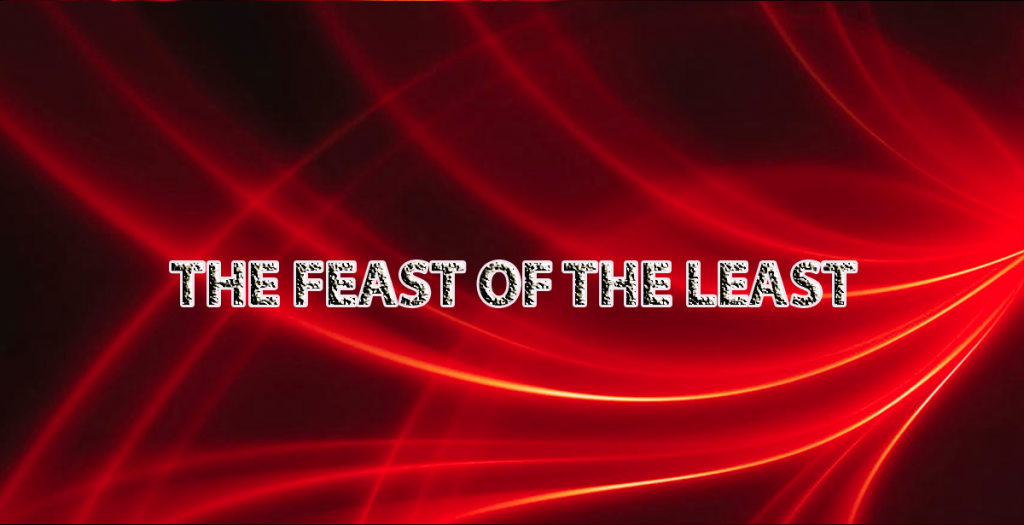THE FEAST OF THE LEAST
Opening Prayer
Heavenly Father, you are my Maker and my God. Guide me today and give me the grace to follow you.
Scripture Reference
Matthew 9:9–13
Read
The Calling of Matthew
9 As Jesus went on from there, he saw a man named Matthew sitting at the tax collector’s booth. “Follow me,” he told him, and Matthew got up and followed him.
10 While Jesus was having dinner at Matthew’s house, many tax collectors and sinners came and ate with him and his disciples. 11 When the Pharisees saw this, they asked his disciples, “Why does your teacher eat with tax collectors and sinners?”
12 On hearing this, Jesus said, “It is not the healthy who need a doctor, but the sick. 13 But go and learn what this means: ‘I desire mercy, not sacrifice.’[a] For I have not come to call the righteous, but sinners.”
Footnotes
- Matthew 9:13 Hosea 6:6
New International Version (NIV)Holy Bible, New International Version®, NIV® Copyright ©1973, 1978, 1984, 2011 by Biblica, Inc.® Used by permission. All rights reserved worldwide.
Meditate
Consider
‘Do not withhold your mercy from me, Lord; may your love and faithfulness always protect me.’1
Think Further
The journey of faith is often wrongly perceived as solely a matter of individual belief and conviction, but it is equally about how we interact with other people. This passage shows us how Jesus discipled Matthew and the example he set both for the Pharisees and for us as we seek to disciple others.
There is a discernible pattern in Matthew’s calling. First, Jesus calls him and Matthew responds by following him (v 9). Next, Matthew invites Jesus and his disciples into his home for dinner. Then, they eat together, joined by other tax collectors and sinners (v 10). Both Jesus and Matthew take initiative in this relationship and each responds to the other: Jesus calls, Matthew responds; Matthew invites, Jesus responds. Most importantly, their relationship involves being and sharing together and including others in their being and sharing: this is a relationship of mutual respect, not one in which Jesus dictates what he wants.
The Pharisees find this hard (v 11). Tax collectors were largely reviled by Jews, perceived to be guilty of malpractice and of collaboration with the Romans. The term ‘sinner’ is debated, but at least partly denoted those who did not keep the Jewish law.2 Surely, Jesus in discipling them should be encouraging them to reform? Teaching them to believe, and do, the right things – not just ‘being’ with them? Jesus, however, challenges the Pharisees’ assumptions. It is they who need to learn here, not the ‘sinners’. Likewise, we must learn to be slow to judge or demand lifestyle changes from those whose background or standards of behavior are different from our own. Our primary calling is to show mercy to our brothers and sisters. As we do so, we will perhaps learn that we can receive it, too.
Apply
Consider one way in which you could share hospitality this week with someone who is different from you.
Closing Prayer
Merciful Lord, today may my life clearly demonstrate the difference you can make in a life.
1 Ps 40:11 2 Paula Gooder, Let me go there, Canterbury Press, 2016, p97
Book and Author Intros
Last Updated on August 20, 2022 by kingstar

